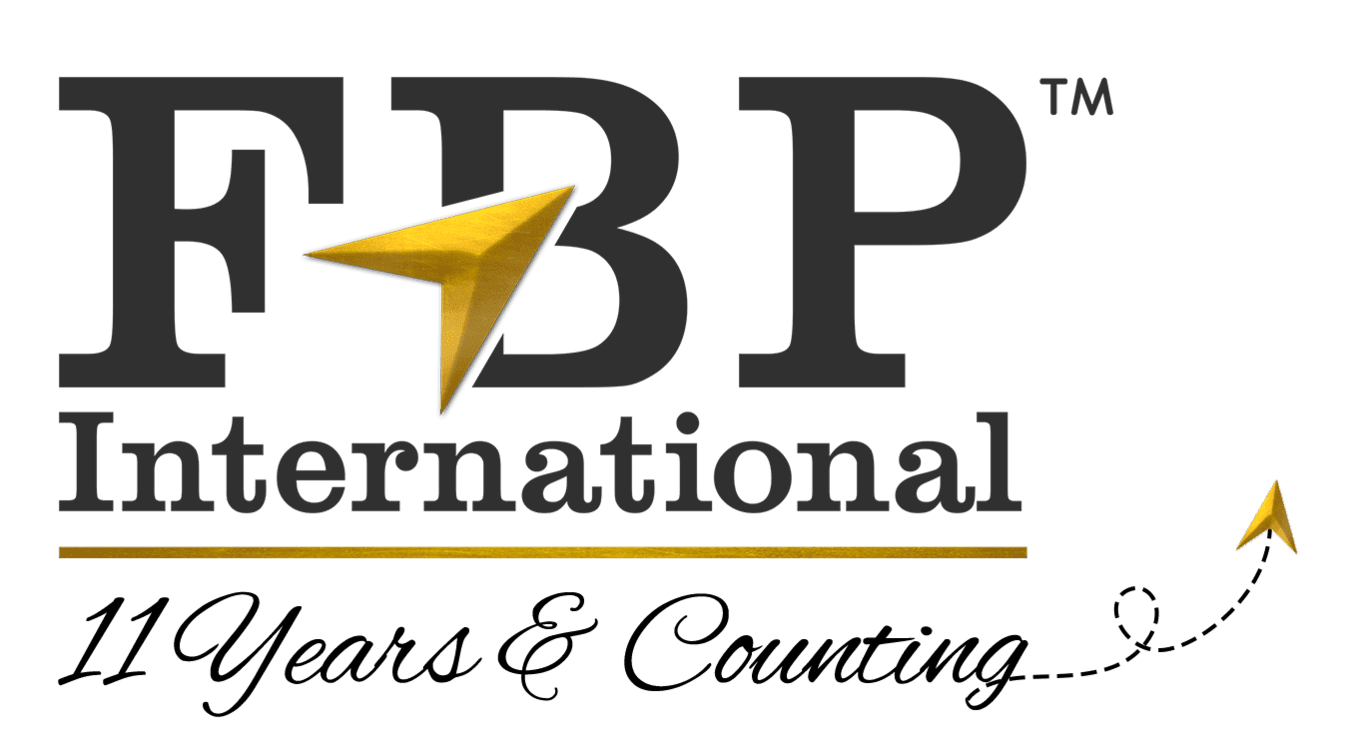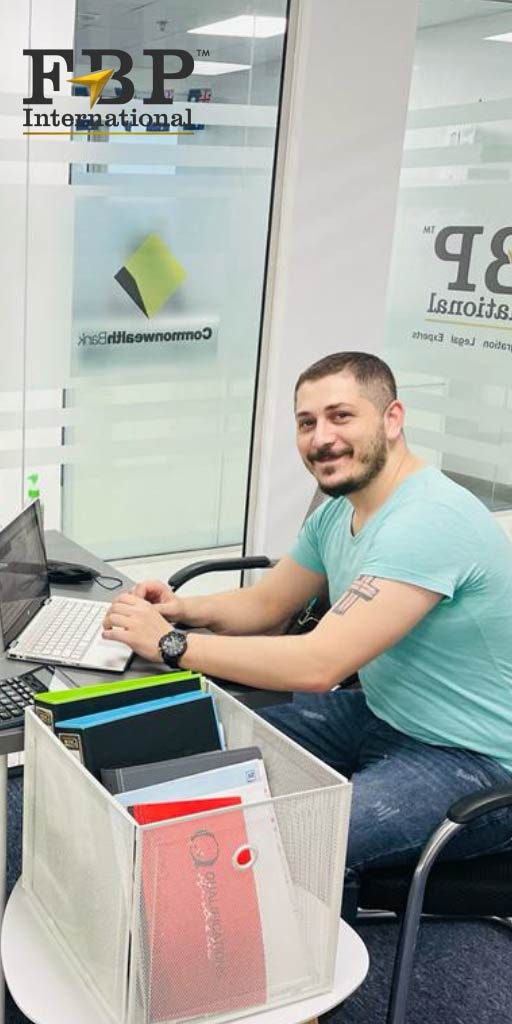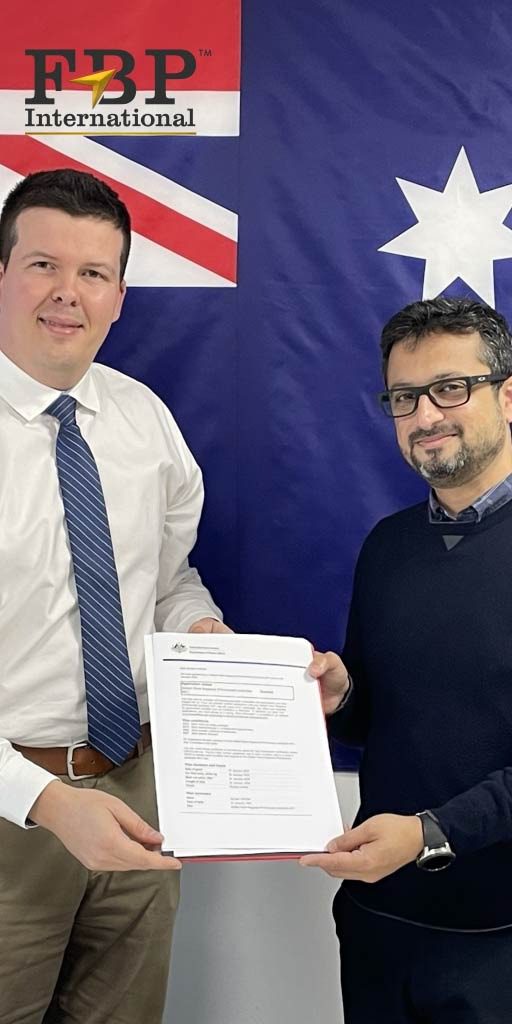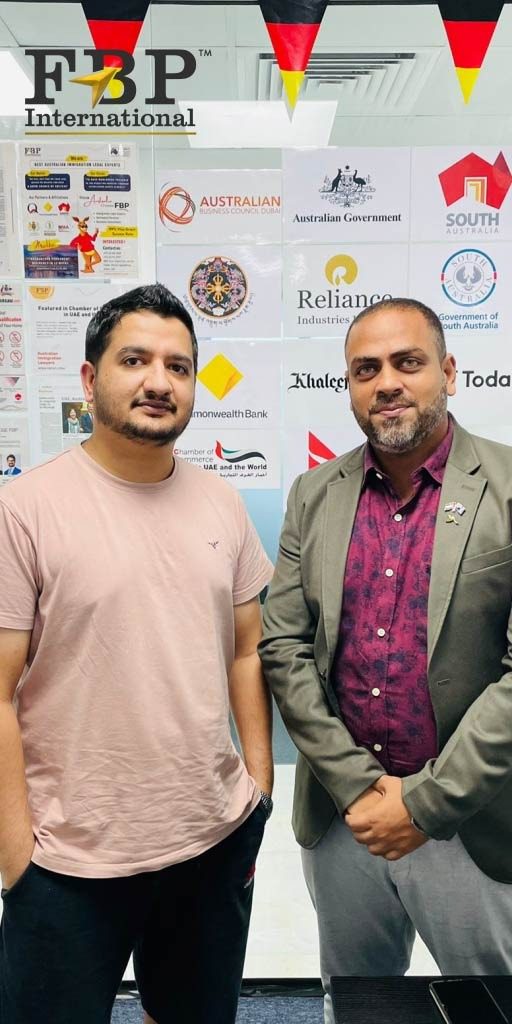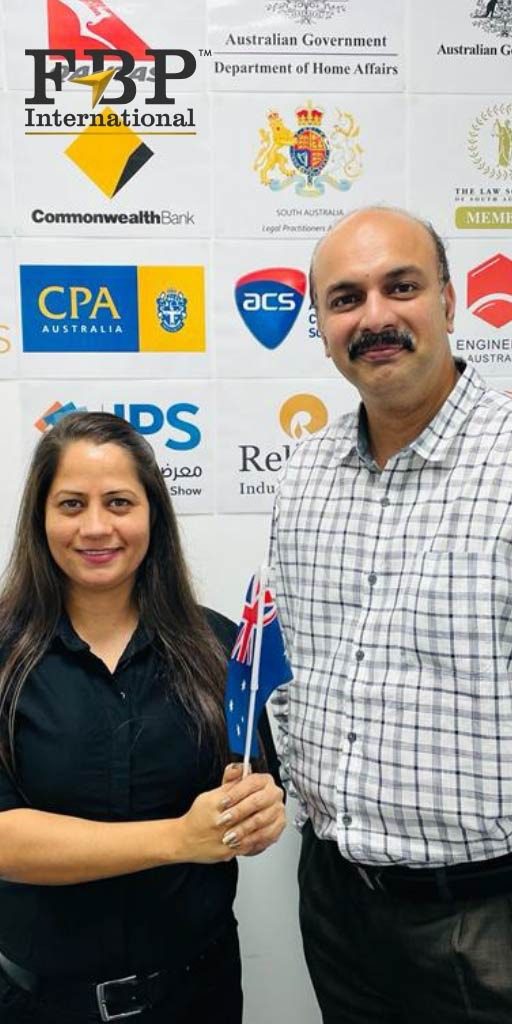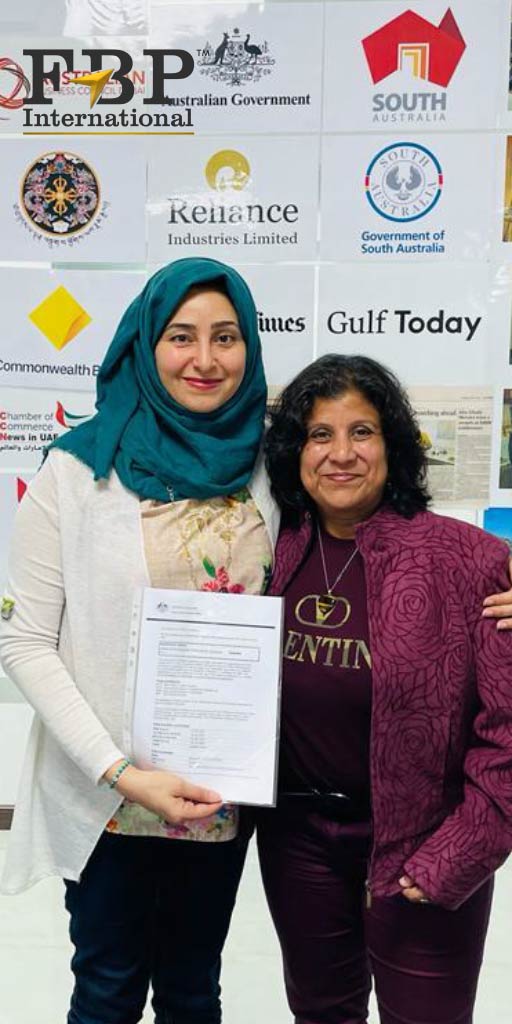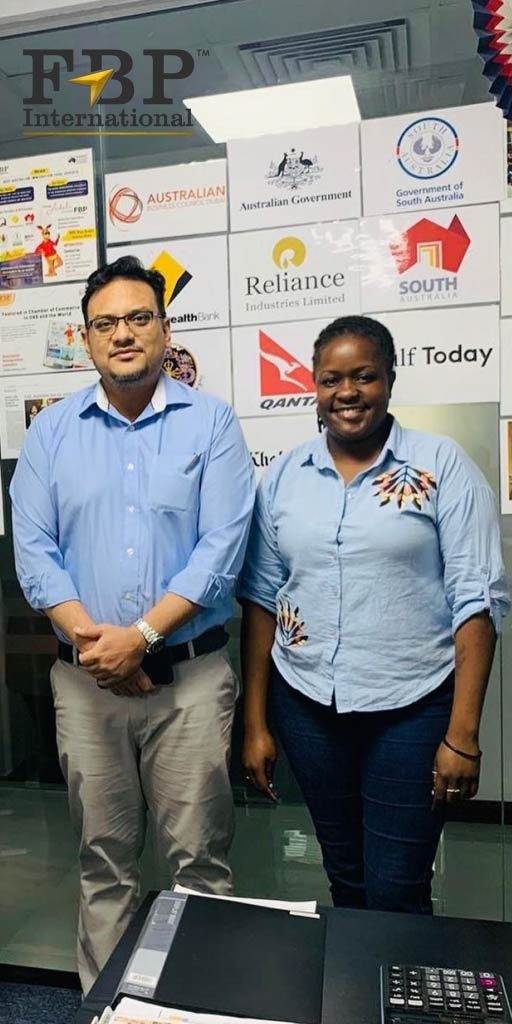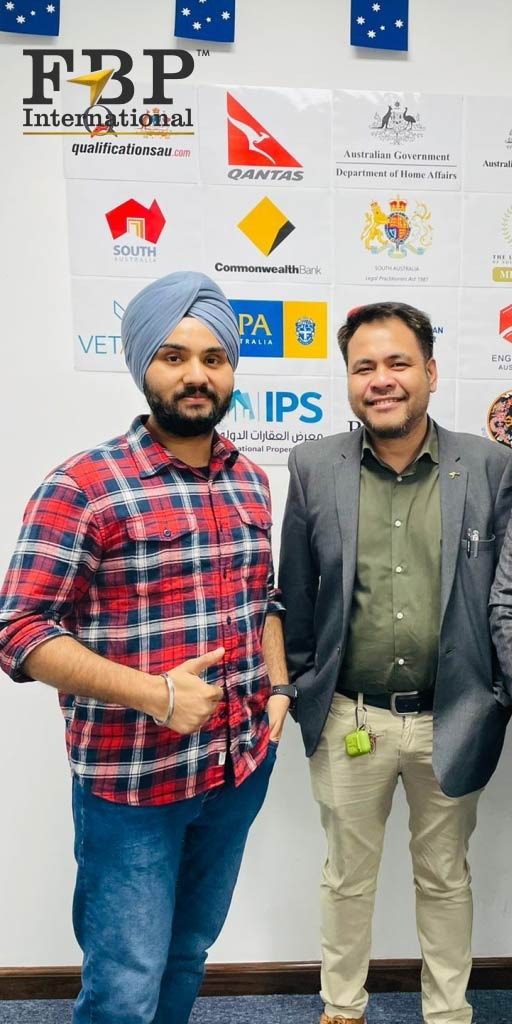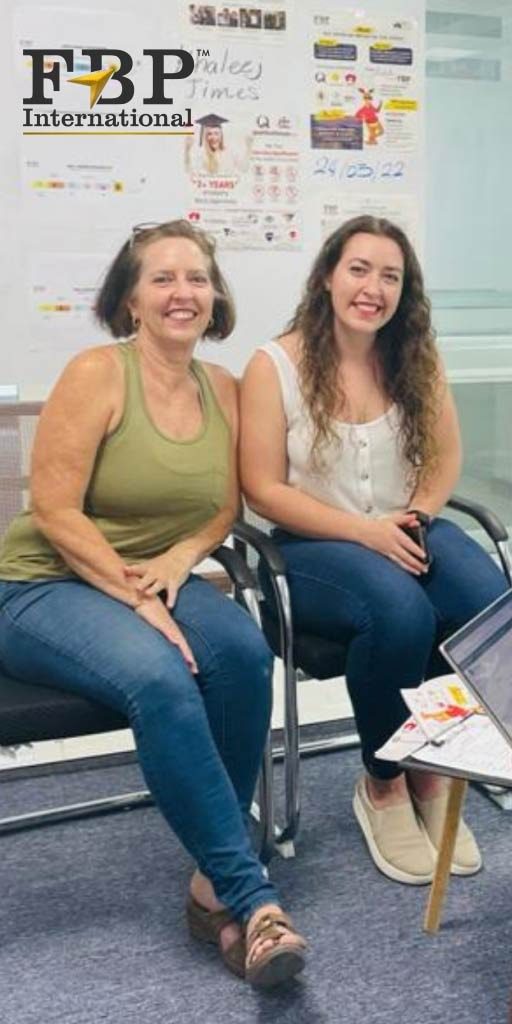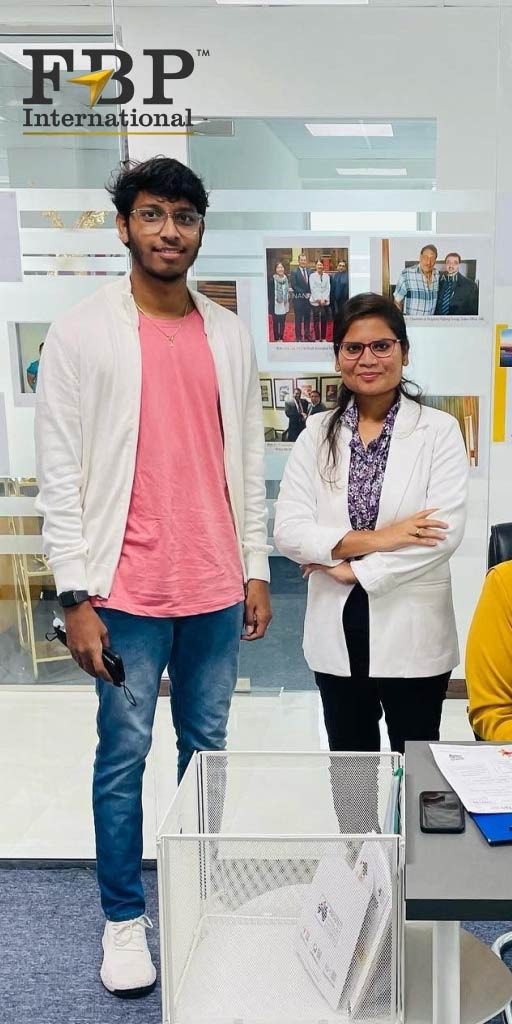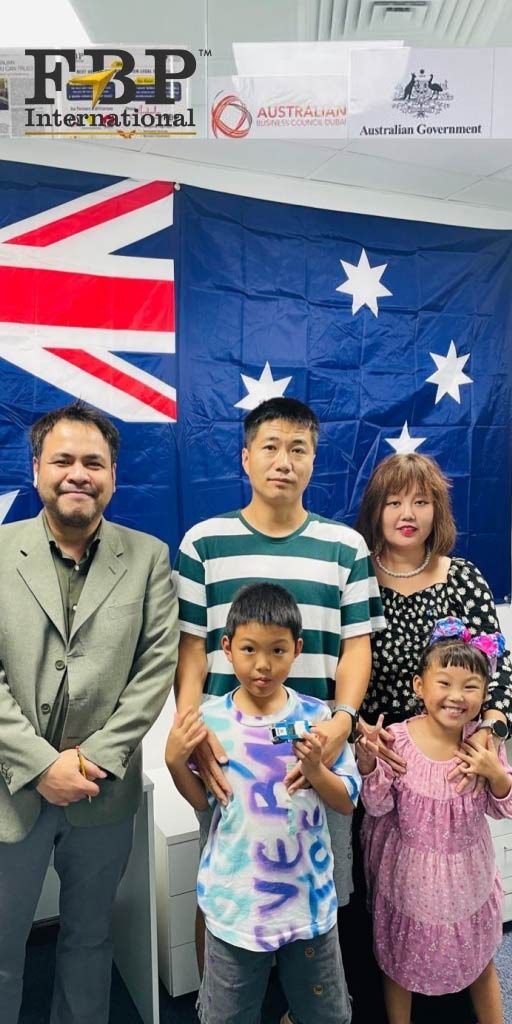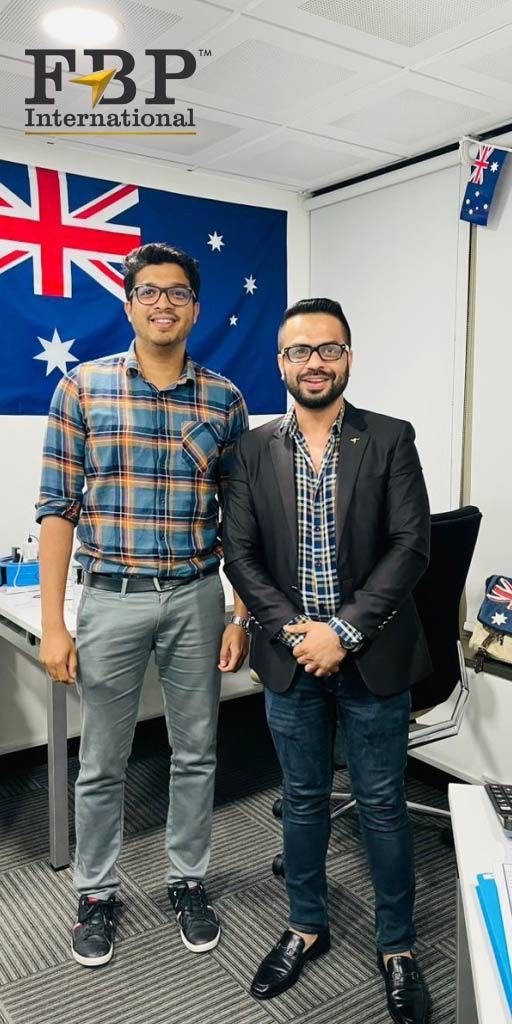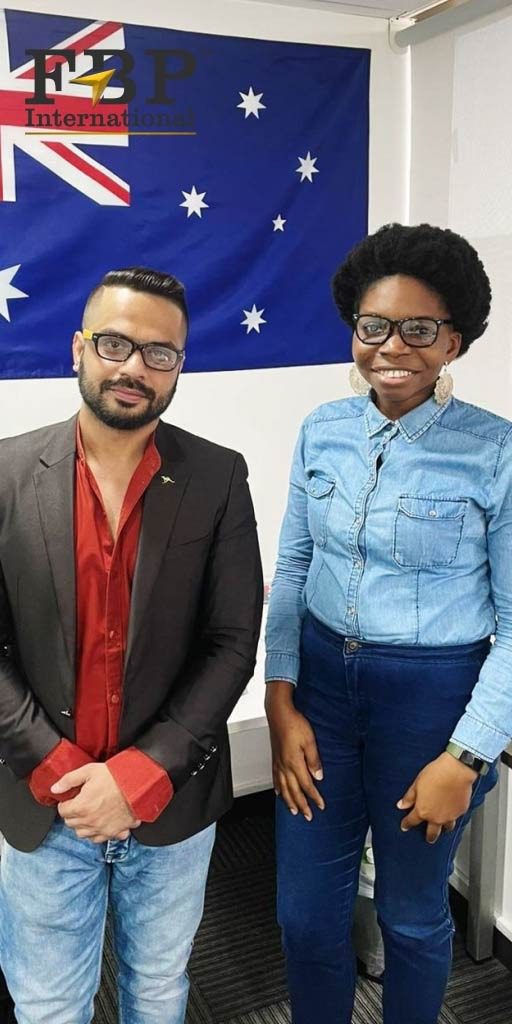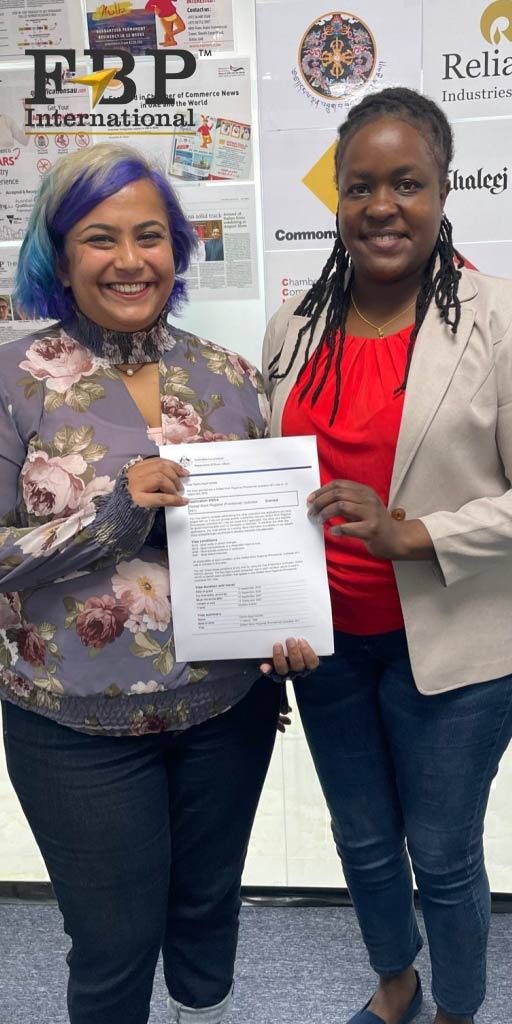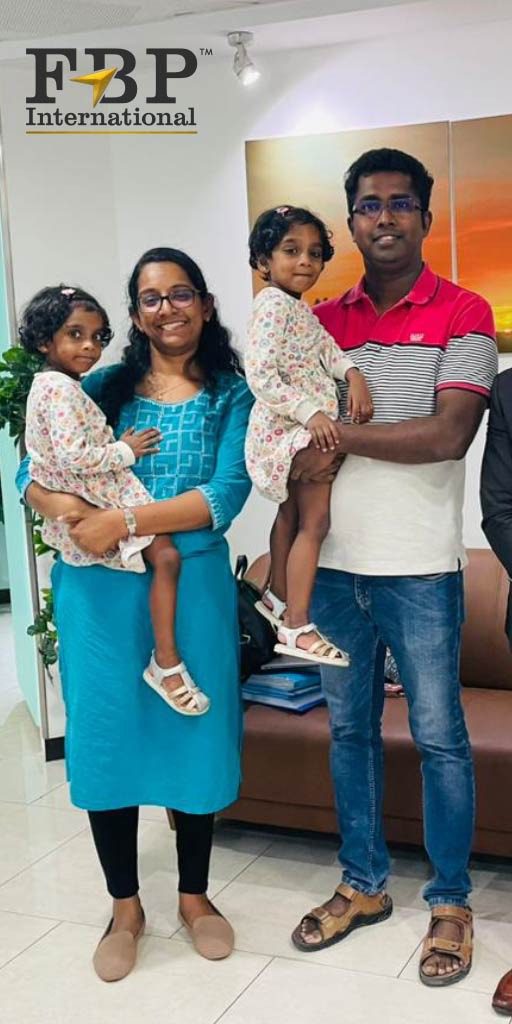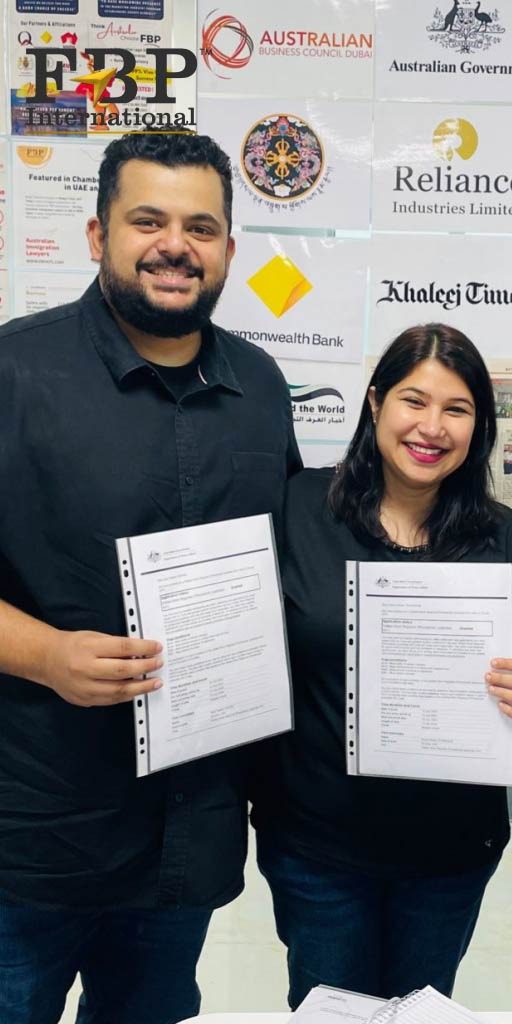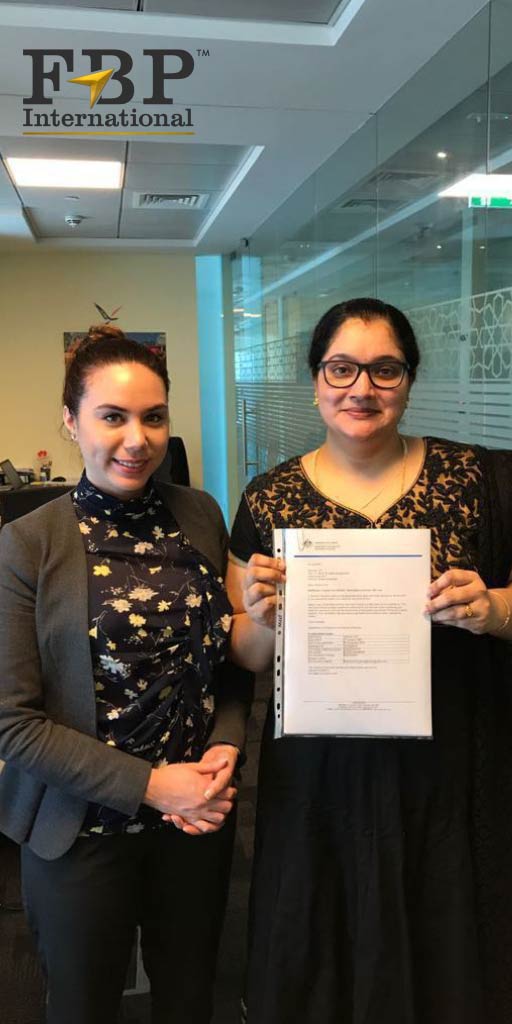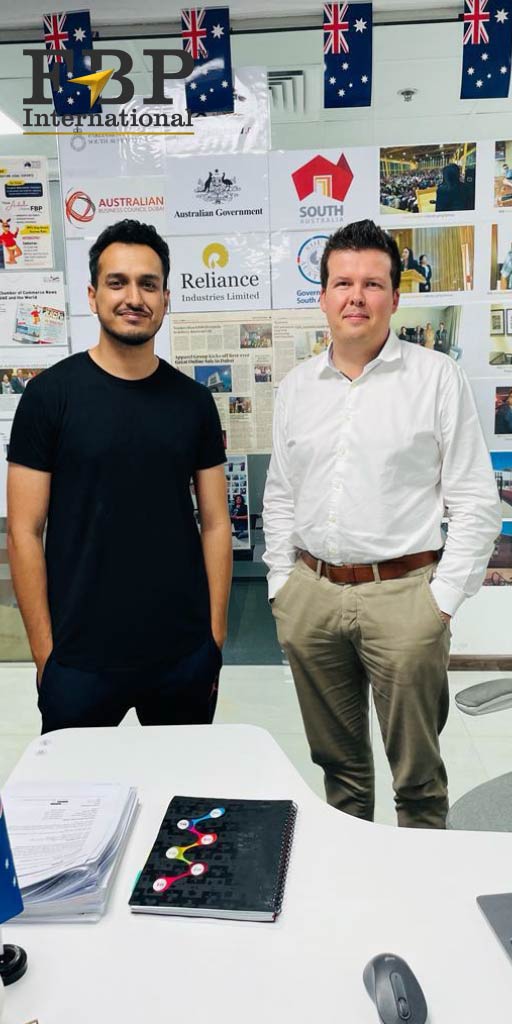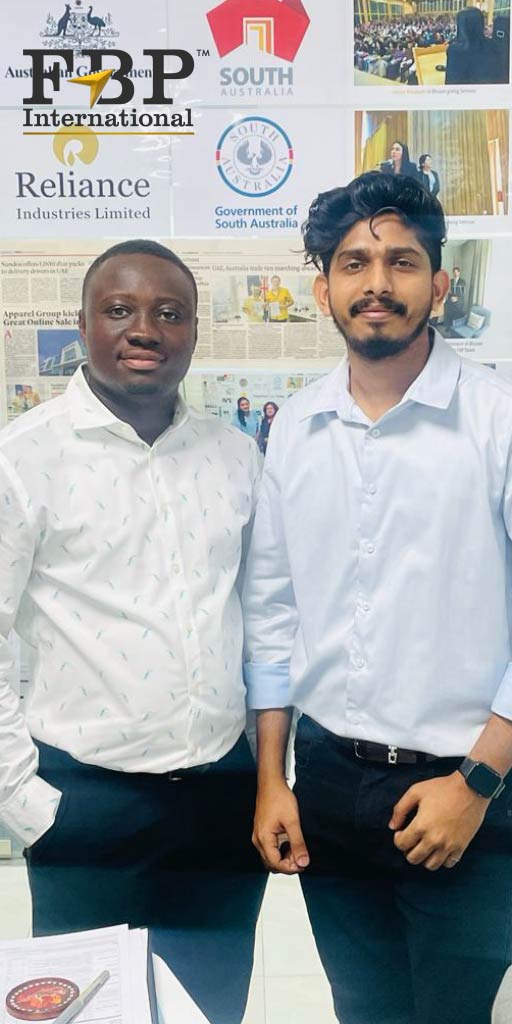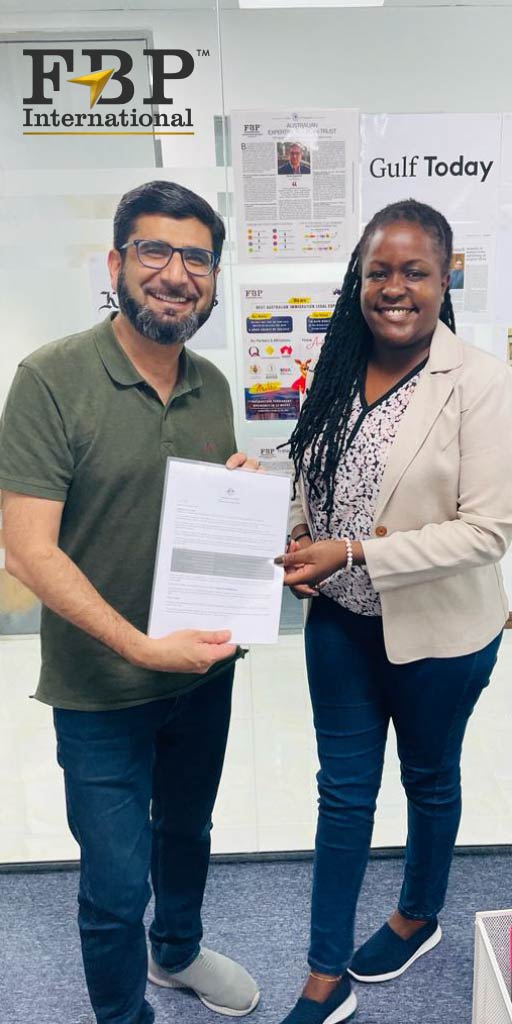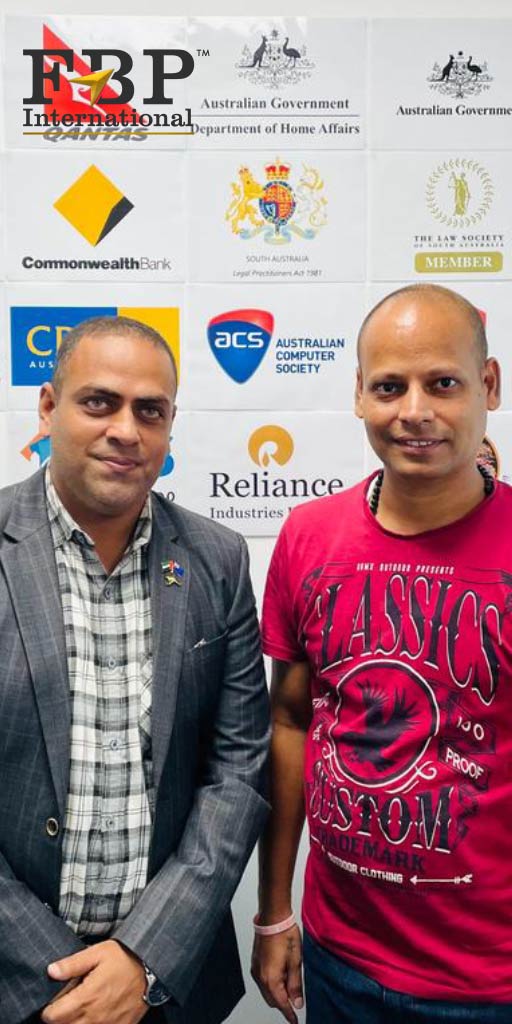

About Us
Our Success Stories
FAQ's
What is FBP International?
FBP International is a proudly Australian-owned and operated business boasting over 50 years of Australian migration and settlement expertise. Recognised as the “Best Australian Immigration and Settlement Legal Experts,” the team comprises seasoned in-house Australian Immigration Legal Practitioners who offer expert advice and comprehensive consultations for a seamless migration experience. FBP International is the sole Australian Migration Legal Expert in GCC/MENA and India.
What does FBP International offer that migration agencies do not have?
FBP International is NOT a migration agency.
FBP International distinguishes itself as a specialist in migration and settlement in Australia rather than a conventional migration agency. The focus is solely on assisting individuals with their migration journey to Australia. They maintain direct communication with all relevant government bodies involved in the visa application process, ensuring clients a smoother and more efficient experience.
Does FBP International onboard clients directly?
No, FBP does not onboard clients directly.
You may visit the nearest IBA Master Franchise or Agents:
- Document Clearance Services in GCC/MENA
- F4-MG in India.
What services does FBP International provide?
FBP specialises in offshore applications, offering a comprehensive suite of services for Australian migration and settlement. The expertise encompasses skilled migration, business and investment visas, family and partner visas, visa application assistance, document preparation, and submission. Additionally, FBP provides post-visa support, including settlement advice and services.
Unlike traditional migration agents, FBP International possesses the knowledge and experience to represent clients in Court and appeal decisions made by Australian Authorities and Government bodies involved in the migration process.
How long does the application process typically take?
The processing time for offshore applications is subject to variation, influenced by factors such as visa category, case complexity, and the current workload of Australian migration authorities. While some visas may be processed within a few months, others could extend beyond a year. Rest assured, the experts will assess the individual’s circumstances and provide an estimated timeline accordingly. They also ensure the client stays informed about the application’s progress.
How do I find out if I am eligible to apply?
Book an appointment with any of IBA’s master franchise or agents to learn more about your eligibility.
Why does FBP International focus on permanent migration instead of short-term visas?
FBP understands that Australian Authorities tend to be reluctant to grant visas for short-term purposes, such as student visas and work permits, with high rejection rates. FBP’s priority is to avoid giving clients false hopes. While technically feasible, many clients need more chances for success with such visa applications. Our focus remains on delivering tangible results, and our in-house legal team only extends services when confident in the applicant’s strong likelihood of obtaining a visa grant. It is important to note that most short-term visas typically do not fall within this category.
Can you help me determine the most suitable visa category for my application?
Of course! FBP’s experienced team of Legal Practitioners will assess your unique circumstances, qualifications, and migration objectives to help you identify the most appropriate visa category for your visa application. They consider factors such as your occupation, skills, work experience, family ties, and investment capabilities to recommend the best pathway for you. FBP’s job is to find the most efficient way to help our clients migrate to and settle in Australia.
Why does a client need FBP International if they can just log online and submit the application for Australian migration?
The Australian visa process is all about documentation, the correct format, and ways to submit those documents. As legal experts in the migration field, FBP has developed a program strategy that makes the client’s application process smooth.
What are FBP International's terms and conditions?
Please see the link: https://www.fbpintl.com/terms-conditions/
How to make a client aware of migration scams?
Please visit: https://www.fbpintl.com/about/migration-scams/
What are the chances of my visa application being successful?
While nobody can guarantee the outcome of any visa application, FBP’s experienced Legal Practitioners will work diligently to maximise your chances of success. By carefully reviewing your qualifications, preparing accurate documentation, and guiding you through the application process, they aim to submit the strongest case on your behalf. If you follow the legal team’s guidance, there is a 99% visa grant success rate.
Are there any specific requirements for offshore applications?
The requirements for offshore applications depend on the visa category you are applying for. Generally, you must meet specific criteria, such as age, skills, work experience, language proficiency, and health and character requirements. FBP’s Legal Practitioners will provide a detailed list of requirements based on your chosen visa category and help gather the necessary documents and evidence to support your application.
How much does applying for an Australian visa through FBP International cost?
The fees FBP charges for aiding in your application vary based on the intricacy of your case and the type of visa you are applying for. Apart from FBP’s service charges, you must also cover the relevant visa application fees to the Australian Department of Home Affairs. Migrating to Australia can be financially demanding. Hence, it is crucial to be ready to invest significantly in reshaping your and your family’s future through this process. FBP will furnish a comprehensive quote before commencing your application, ensuring absolute clarity.
Do I need to take an English language test for my application?
Numerous Australian visa classifications require applicants to exhibit a specific English language proficiency level. This usually entails completing an accredited English language assessment, like the International English Language Testing System (IELTS), Occupational English Test (OET), or Pearson Test of English (PTE). The mandated test score varies based on the visa category and particular eligibility criteria. FBP’s proficient team will assist you in determining which test is obligatory and the appropriate timing for taking it during your application process. It is important to note that certain visas may not necessitate any English proficiency demonstration.
Can I include my family members in my application?
Clients may include their spouse, de facto partner, and dependent children in their application, depending on the visa category. Each family member must meet the applicable eligibility criteria, and additional fees may apply. The FBP team can provide further guidance on including family members in the client’s application.
What happens after my application is approved?
Once your offshore application is approved, you will be granted a visa to enter live and work in Australia, depending on the specific visa category. FBP’s team can also assist with post-landing support, such as settlement advice, job search assistance, and guidance on accessing essential services in Australia. They aim to help you and your family transition smoothly into your new life in Australia.
Can I apply again or appeal the decision if my visa application is refused?
If your application is refused, you may have the option to appeal the decision or submit a new application, depending on the reasons for the refusal and the specific visa category. FBP’s legal team can help you understand your options and advise on the best course of action based on your circumstances.
Can I work in Australia while my visa application is being processed?
Generally, you cannot work in Australia while your application is being processed. Unless you already hold a valid visa that allows you to work. FBP’s team of experts can assess your eligibility and guide you through the process if this option is available.
How can I stay updated on the progress of my application?
The FBP team will keep you informed about the progress of your offshore application at every stage. You can also contact the team anytime for updates or to discuss any concerns. They are committed to providing clear communication and timely information to ensure you have a positive and stress-free experience throughout the application process.
Are there any age restrictions concerning my application?
Age restrictions depend on the specific visa category. Some visa programs, such as the General Skilled Migration program, have age limits, while others, like family and partner visas, generally do not.
Can I travel to Australia while my application is being processed?
You can travel to Australia while your application is being processed if you hold a valid visitor visa or another temporary visa that allows you to enter the country. However, it is essential to understand that entering Australia on a temporary visa does not guarantee the success of your application. You should also inform your case officer of your travel plans to ensure that everything runs smoothly with your application while you are in Australia.
How do you ensure the privacy and security of my personal information during the visa application process?
FBP takes the privacy and security of your personal information very seriously. It adheres to strict data protection policies and practices, ensuring your information is handled confidentially and securely. The experts only share your personal information with relevant authorities as required for your visa application and in compliance with applicable laws and regulations.
What qualifications and experience does your team have?
The FBP team has extensive qualifications and experience in Australian migration law and adheres to its professional standards and code of conduct. The team also participates in ongoing professional development to stay updated on the latest changes to Australian migration rules and regulations.
What are the post-landing services that FBP provides to the clients?
FBP International can assist you with the following post-landing services:
- Orientation Services
- Opening of bank account, even before you arrive in Australia
- Assistance and guidance in finding job opportunities
- Assistance in finding accommodation
- Connecting you with our local network of contacts
- General advice and tips
Many of FBP’s clients are still in contact, even years after having migrated to Australia. They are also available to assist their clients after they have settled in Australia.
Can FBP International help me find a job in Australia once my application is approved?
While FBP primarily focuses on the visa application process, it can provide guidance and resources to help you in your job search in Australia. The post-visa support services may include job search advice, tips for writing an Australian-style resume, and information on job market trends in your industry.
How can I contact FBP to start my visa application process?
Contact any IBA’s Master Franchise or Agent: Document Clearance Services in GCC/MENA and F4-MG in India. They recommend scheduling a consultation to discuss your migration objectives and begin your application process. The team is committed to providing personalised services and expert advice to help you achieve your Australian migration goals.
Can I apply for an Australian visa if I have a criminal record or a previous visa refusal?
A criminal record or a prior visa refusal does not automatically disqualify you from applying for an Australian visa. However, it may affect your eligibility depending on the nature of the offence or the reason for the refusal. FBP’s Australian Legal Experts will assess your circumstances and advise you on the best course of action for your application.
How can I extend or change my visa after my offshore application is approved?
If you wish to extend or change your visa after your application is approved, the FBP team can help you determine your eligibility and guide you through the process. Depending on your visa category and circumstances, you may be able to apply for a visa extension, change your visa type, or apply for a new visa altogether. It is important to consider these options well before your current visa expires to avoid any potential issues with your migration status in Australia.
How do I know if my qualifications and work experience will be recognised in Australia?
Recognising your qualifications and work experience in Australia depends on your occupation and the specific requirements of your chosen visa category. Sometimes, you may need a skills assessment or obtain professional registration in Australia. The FBP team can help you understand the recognition process and guide you through any necessary steps to ensure your qualifications and experience are recognised.
Can FBP International help me apply for Australian citizenship after my application is approved and I have met the residency requirements?
Yes, FBP can assist you in applying for Australian citizenship once you have met the residency requirements and fulfilled any other eligibility criteria. They will guide you through the application process, including preparing the necessary documentation, submitting your application, and helping you prepare for the Australian citizenship test or interview if required.
What is the role of the Department of Home Affairs in my application process?
The Department of Home Affairs is the Australian government agency responsible for managing the country’s migration and visa programs. The department assesses visa applications, including offshore applications, to determine eligibility and ensure applicants meet all necessary requirements. FBP’s team of Legal Experts works closely with the Department of Home Affairs throughout the visa application process to ensure your application is accurate, complete, and compliant with all relevant laws and regulations.
Can FBP International help me with my application for a Business Innovation and Investment visa?
Yes, FBP International can assist you with your application for a Business Innovation and Investment visa. The FBP team has extensive experience with this visa category. It can guide you through the entire process, including preparing your application, gathering required documentation, and liaising with the Australian Department of Home Affairs on your behalf.
Will FBP International assist me in obtaining a student visa for Australia?
No, although FBP International has the knowledge and skills to apply for any visa, they have opted not to provide this service to their clients because of high rejection rates.
FBP focuses on providing value to their clients, so they do not go ahead with visa applications if the team of Legal Experts does not believe you have a good chance of success.
There is a huge misconception that getting a student visa and applying for a PR afterwards while in Australia is easier. It is the result of migration spreading misinformation.
Can FBP International help me prepare for the English language tests required for my Australian visa application?
While FBP International does not offer direct English language training, its partners can guide you on the English language tests required for your Australian visa application. FBP’s partners have in-house English trainers and provide online classes to help you understand the test format and scoring system so you are well-prepared for your test.
Why is Australia an attractive destination for migration?
Please click the link: https://www.fbpintl.com/migrate-to-australia/
What do subclass visas mean, and what are they?
Please check the site below for more information.
https://immi.homeaffairs.gov.au/visas/getting-a-visa/visa-listing
How do I know if my job description is wanted in Australia?
The legal team selects the occupation as the job terminologies used by the Australian Authorities are particular and can have different meanings from the customarily used terminologies.
E.g., the term Carpenter in its everyday use, means a person cutting and assembling a piece of furniture. In Australian terminology, a carpenter is a person who only cuts wood; the assembler is called a joiner.
This is an example of why your CV is the backbone of your application!
If you want information about specific job openings in Australia, you can search on popular job platforms like www.seek.com.au.
Will the migration authorities or the Embassy help me prepare my application and ensure that everything is correct before applying?
No. The government’s role no longer includes offering this service. Instead, its responsibilities encompass enforcing migration laws, adjudicating residence applications, and issuing residence visas. Although basic information and application forms are available, the rules cannot provide independent advice or personalised guidance on your case. Only an Australian Legal Practitioner is qualified to provide proper guidance throughout your application.
Can the migration authorities refuse my application?
Yes. Many applicants must be aware of how strictly the migration regulations are enforced. They are often unnecessarily refused or delayed due to technical errors on their application or by submitting the wrong supporting documentation. So, the moral of the story is to seek the professional guidance and independent advice of a Legal practitioner.
If I meet the basic qualifications for an Australian visa category, am I guaranteed approval for my application?
No. Although you may fundamentally qualify under the migration policy, you are not guaranteed success. According to the prevailing immigration regulations, your application must be prepared and submitted with the appropriate supporting documentation approved by the immigration authorities. How to do this is only sometimes set out by the migration authorities. Many applicants present their cases incorrectly, inevitably leading to refusal.
What changes were introduced by the Migration Amendment (Regulation of Migration Agents) Act 2020, and when did these changes come into effect?
On June 15, 2020, both Houses of Parliament passed the Migration Amendment (Regulation of Migration Agents) Act 2020, commonly referred to as the new legislation. It officially took effect on March 22, 2021. This legislation amended the Migration Act 1958, stipulating that Unrestricted Legal Practising Certificate (ULPC) holders were no longer eligible to register as migration agents. Instead, ULPC holders were granted the ability to provide immigration assistance within the scope of legal practice, eliminating the need for dual regulation. Consequently, ULPC holders who were also registered migration agents (RMAs) were delisted from the Register of Migration Agents by the OMARA on March 22, 2021.
What are the implications of the new legislation for ULPC holders regarding their registration as migration agents and their ability to provide immigration assistance?
Before the new legislation came into force, a ULPC holder must register as a migration agent to assist. The registration as a migration agent remained unchanged until the implementation of the new legislation. On March 22, 2021, the registered name was delisted from the Register, granting them the ability to provide immigration assistance related to legal practice without registering as a migration agent.
Why does FBP International not have OMARA-registered agents?
Australian legal practitioners and exempt persons do not have to be registered as migration agents to provide immigration assistance in Australia. FBP International, led by Australian Legal experts, has a higher Authority than an OMARA registered agent. https://www.fbpintl.com/migrate-to-australia/difference-between-agents-lawyers/
Who can migrate?
Generally, most countries look for applicants who are skilled in their occupation with at least 3+ years of experience, possess a bachelor’s degree or higher qualification, and can also prove their proficiency in the English language through various internationally recognised tests. Further, for a few countries, applicants with blood relatives already residing or applicants having an offer of employment from an employer in the migrating country will be preferred.
How do I qualify to immigrate to Australia?
You can easily get qualified to immigrate to Australia if you meet the following requirements:
- Points: A minimum score of 65 in the Points Grid.
- Age: Below 45 years.
- English Proficiency: PTE Score or IELTS test results.
- Skills Assessment: Skill assessment by certified authorities in Australia.
Occupation: Occupation should be listed in Australia’s Skilled Occupation List or Priority Migration Skilled Occupation List (PMSOL).
How long does it take to immigrate to Australia?
Immigration to Australia through a PR Visa takes an average of 5 months and can take 12 months as well. It is dependent on individual circumstances. It could also take roughly three months if you have all the required skills and points score.
How can I migrate/immigrate to Australia from India?
Below is the stepwise immigration process for Australia:
- Obtain the IELTS certification with the required score.
- Obtain Skill Assessment from the appropriate authority for assessment.
- Select an occupation from the Skilled Occupation Lists.
- If applicable, obtain Nomination/Sponsorship from a Territory or State in Australia.
- Submit an Expression of Interest – EOI on Skill-Select.
- You will receive an Invitation to Apply for a Visa if your profile is selected.
- You will have sixty days to submit the Australia Visa application.
What are the requirements to migrate to Australia?
According to the Australian government, you should have an Australian visa to enter the country. The different types of Visas offered by the Australian government are given below:
- Visitor Visa – If you plan to visit Australia for a short time, you will require a Visitor Visa. This visa can be issued for a period ranging from a month to a maximum of 12 months.
- Sub-Class 771 Transit Visa – This visa is for you if you want to transit via Australia. This visa is valid for 72 hours only.
- Sub-Class 602 Medical Treatment Visa – If you want medical treatments, consultations or donation of organs in Australia, this is for you. Surrogacy does not fall under this visa.
- Sub-Class 417 Working Holiday Visa – If you are aged between 18 to 30 years and interested in enjoying a holiday and working for a maximum period of 12 months, this Visa is what you should go for. There are some countries to which this visa is issued. The UK, Canada, France, Germany, Denmark, Belgium, South Korea, Taiwan, Japan, Norway, Sweden, Ireland, Malta, Hong Kong, Netherlands, Italy, Finland, Cyprus and Estonia.
- Sub-Class 462 Work and Holiday Visa – Just like the Sub-Class 417 Work and Holiday Visa, this visa is offered to people travelling from the US, Brazil, China, Turkey, Poland, Portugal, Argentina, Chile, Malaysia, Bangladesh, Thailand, Slovakia, Slovenia and Uruguay. The maximum time this visa is valid is 12 months.
- Sub-Class 500 Student Visa – If you are looking to pursue full-time study in recognised Australian Educational Institutions, this visa is what you should look for.
- PR Visa – If you want to become a permanent resident of Australia, you should apply for this visa. You should understand certain policies and laws before applying for the PR Australian visa. If you become a PR of Australia, you will not only have complete rights to work and live there but also be given all the benefits like medical coverage (Medicare) by the government of Australia.
- Sub-class 155, 157 Resident Return Visa (RRV) – People holding this type of visa can return to Australia as a PR after travelling to other countries. You can re-enter Australia multiple times before the date of expiry of the visa. The validity of this visa ranges between 3 months to 5 years.
- Sub-class 444 – Special Category Visa – This visa is exclusively issued to the citizens of New Zealand. It is issued to only those who hold a valid New Zealand visa. This visa allows the holder to work, visit, or reside in Australia. It is issued to people with ‘No Untreated Tuberculosis (TB) and ‘No Criminal Background’. They should also not have been excluded, deported or removed from any country in the past. This visa is issued after the person arrives in Australia.
- Sub-class 808 Confirmatory Resident Visa – This visa is issued to those people who have fulfilled all the desired requirements when holding a Norfolk Island Immigration Permit (Either GEP, TEP or Unrestricted Entry Permit (UEP)). People holding this visa can work and live anywhere in Australia. They can enter and leave Australia whenever they want but within the visa’s expiry date.
How much does it cost to immigrate to Australia from India?
Below is the list of costs on an Australia Visa application for immigration from India:
| Factor | Cost |
| Visa Application Charge – Department of Home Affairs (DHA) | Base charge – AUD4240, Dependents 18 years or above – AUD2120 & Dependents below 18 years – AUD1060 |
| Application Fee – Skills Assessment | From AUD500 to AUD4000 for the majority of occupations |
| Application Fee – Sponsorship application | From AUD200 to AUD800 |
How many points do you need to immigrate to Australia?
To qualify for an Australia PR visa under the Australian PR points system, a minimum of 65 points is necessary. This score is also required for eligibility in various skilled visa categories such as visa subclass 189, 190 Australia visa, or subclass 491.
How can I get an Australian Computer Society (ACS) assessment done for two job codes for migrating to Australia?
ACS assessment can be done under diverse occupation codes in the Australian and New Zealand Standard Classification of Occupations (ANZSCO). Nevertheless, it is always advisable to be careful while submitting the second application under different occupation codes in ANZSCO. This is if the applicant has already received a positive ACS report under one of the occupations assessed under ACS.
The applicant must provide evidence demonstrating that they are actively performing the duties of the new occupation as defined by the ANZSCO code. Furthermore, they must meet the specific requirements outlined by ACS.
Moreover, obtaining an opinion from the ACS before applying for a new occupation is worthwhile. Applicants can link the second application to the previous one or submit a new one.
How long does it take for a visitor visa for Australia to come, applied in India via an IMMI account?
The processing duration for an Australian Visitor visa varies depending on several factors. It may range from a few days to several weeks for certain applications.
How can I apply for an Australian Visa?
You must know the complete procedure for applying for an Australian visa. The procedure for the most common visas Indians apply is given below.
- Tourist Visa
- Business Visa
- Family/Friend Visa
Step – 1
Based on your need, choose the type of visa that best suits your purpose. Get to know all the possible information related to that visa. For example, If you plan to visit Australia and stay for a very short time, the Sub-class 600 would suit you.
Step – 2
Indians can apply for the Australian e-visa that can be applied online. Filling out this form is straightforward as it has some basic questions like your financial status, travel history, identity, health information, purpose of visiting Australia, and employment details. As this is a time-consuming task, it would be good if you could keep all this information ready when you fill out the form.
Step – 3
After completing the application form, you will be asked to submit the supporting documents. Upload all the documents and ensure you do not miss any of them. These might include documented evidence of your work, education, DOB proofs, financial ability and travel history.
Step – 4
The Australian e-visa fee can be paid online. This fee is not the same every time. You will have to pay an extra surcharge if you make the payment using a credit card (This differs from bank to bank).
Step – 5
After completing the application form and uploading all the supporting documents, it is time to submit them. Click on the ‘SUBMIT’ button. After this, you will receive an acknowledgement of the application receipt in your email.
Step – 6
After this, you will have to wait for a considerable time. You will receive an email stating whether a visa has been granted to you. You will not receive any update regarding the progress of your visa.
If you receive a visa grant notice, check for all the details relating to the tenure of the visa, travel facility, entry frequency and any other important information
What is the processing time for visa applications?
The processing time for the visa application depends on various factors. On your part, you must take care that your application is complete and has the required information. An incomplete application or lack of relevant information can result in delays, and your application could be refused.
What are the eligibility requirements for a PR visa to Australia?
Eligibility criteria for PR visa:
- Points Required: Minimum 65 points in the Points Grid
- Age: Below 45 years
- English Proficiency: A competent level of proficiency in English
- Health and Character: Good health and character
- Skills: Skill assessment by certifying authorities in Australia
- Occupation: Occupation must be nominated in Australia’s Skilled Occupation List
What are the benefits of having a PR visa?
Benefits of having a PR visa:
- You can live and travel anywhere in Australia.
- You are eligible to pursue higher studies and can apply for certain educational loans.
- You are eligible for Social Security benefits after two years as a PR visa holder.
- Your children born in Australia naturally become their citizens.
- You can sponsor the PR of your relatives, provided they meet certain prerequisites.
- You have the right to apply for government jobs.
- You have the right to travel to New Zealand and can even apply for a visa there
Is Australia accepting immigration applications?
Yes, the Australian Immigration Department is open and accepting applications from immigration candidates. However, immigration policies and procedures may change, so it’s advisable to check the latest information on the Australian government’s official immigration website or consult a registered migration agent for the most up-to-date guidance.
Are Australian Skill Assessment bodies accepting applications?
Skill Assessment bodies are accepting applications for assessment from visa applicants. Skill assessments like the VETASSESS and Trades Recognition Australia to TRA have declared that they will continue assessments from visa applicants through their online portal. Skill assessment is crucial to the General Skilled Migration program to migrate to Australia.
How many Skill Stream Visa spaces are available for 2023-2024?
As per the 2023-24 Migration Program planning levels, there will be a total of 137,100 visa spaces available in the 2023-2024 program year under the Skill Stream Visa.
What is the total nomination space allocation among all Australian states for 2023-2024?
States in Australia can nominate individuals for Australia PR under specific visa categories.
The total state nomination allocation for the 2023-2024 program year is as follows:
- Skill stream (137,100 places) – This stream is designed to improve the economy’s productive capacity and fill skill shortages in the labour market, including those in regional Australia.
- Family stream (52,500 places) – This stream predominantly comprises partner visas, enabling Australians to reunite with family members from overseas and providing them with pathways to citizenship. Of this stream:
- 40,500 Partner visas are estimated for 2023-24 for planning purposes, noting this category is demand-driven and not subject to a ceiling.
- 3,000 Child visas are estimated for 2023-24 for planning purposes, noting this category is demand-driven and not subject to a ceiling.
- Special Eligibility stream (400 places) – Covers visas for those in exceptional circumstances, including permanent residents returning to Australia after a period overseas.
What is the highest-paid job in Australia?
Accordion C
Top Occupation | Average Salary in AUD per year |
Healthcare | $86,095 |
IT and Software | $56,000 |
Nursing | $73,000 |
Engineering | $97,500 |
STEM | $88,500 |
Teaching | $96,300 |
Accounting and Finance | $90,500 |
Human Resources Management | $116,636 |
Hospitality | $70,004 |
Sales & Marketing | $74,072 |
ontent
Can you move to Australia after 30?
Never get stressed out that your age is 30 or above and if you can migrate to Australia or not. There are a few visas that help you migrate to Australia and guide you through obtaining a Permanent Residency.
- General Skilled visa: Using a General Skilled visa, you can either come independently to the country or choose to be sponsored by a territory or state. This visa is a common pathway open to people over 30 looking to work in Australia. To qualify for this visa, you must possess in-demand skills to help you migrate to Australia. These skills need to be on the Skilled Occupation List.
- Permanent Skill-Based Visa: This is also a skill-based visa, generally for those above the age limit 44. But once you turn 45, many permanent visa options are finished. At that moment, you can try the following:
- The TSS (Subclass 482), i.e., employer-sponsored temporary visa with no age limit, can give you a pathway for permanent residence.
- Business visas also can get permanent residence only if you have a particular net worth and have a set turnover.
- Global talent visa is also an option with no age limit and can give opportunities to convert to PR.
What are the top occupations in demand in Australia?
There are many skilled occupations in Australia which are in high demand. Some of them are the following occupations:
- Engineering
- Accounting and Finance
- Human Resources Management
- Hospitality
- Sales & Marketing
- IT and Software
- Healthcare
- STEM
- Teaching
- Nursing
Can I move to Australia without being a skilled worker?
Australia offers different immigration pathways for highly educated and skilled individuals who can contribute generously to the Australian economy. Australia has a huge requirement for skilled workers who can contribute to the country’s development. But you can also migrate to Australia without a job offer as a skilled worker.
- Skill Select Program: An individual can move to Australia without a job offer. You just need a few necessary skills and qualifications to work in Australia. The Australian government will make your profile available to employers so that they can nominate you.
- Skilled Independent Visa (Subclass 189): Applicant must give an Express of Interest through skill selection before applying.
- Skilled Nomination Visa (Subclass 190): This has privileges similar to Subclass 189. The applicant must choose an occupation from the Consolidated Sponsored Occupation List (CSOL) and submit their profiles.
- Family Sponsorship: If you have a family member who is a permanent resident or citizen of Australia, sponsorship by them negates the requirement for the applicant to secure a job offer.
- Business Innovation and Investment Program: Using this program, the applicant can own or manage a business in Australia, conduct a business, or invest in any entrepreneurial activity in Australia.
- Global Talent Scheme: This scheme brings highly skilled global talent to the country and encourages innovation. This Golden Talent scheme helps international talent invest in start-ups in Australia to give access to workers in Australia to provide advanced skills.
What is the cost of an Australian work visa?
The cost of a visa varies from time to time. If the price of your application increases between the time you submit it and when the immigration department receives it, you must pay the new application fee. You must make sure you have enough money to meet the surcharges.
The cost for visa applications is usually in Australian dollars (AUD) and must be paid together with the application. In some circumstances, however, there are no visa application fees.
What is the processing time for work visas?
The processing time will vary based on the visa you are applying for. The processing time will include the time taken to verify your details and to provide additional information requested by the authorities. The average time between 6 to 12 months to process your visa can vary.
Is PTE compulsory to work in Australia?
PTE is one of the most accepted English proficiency tests for working or migrating to Australia. A minimum of 65 points is required. A high PTE score helps you get the Australia PR.
Can I move to Australia without a job?
Yes, you can move to Australia without a job. Skill Independent Visa Subclass 189 visa is designed for candidates who still need to get a prior job offer. If you are applying under this visa subclass, you do not need a job offer or a nomination/sponsorship from any Australian employer or territory.
